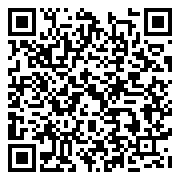Blindness Meets the Devil & The Feel of Blindness, talk by Michalko and Healey
Blindness Meets the Devil: It’s true. Blindness did meet the Devil. And, they met on Queen Street West in Toronto. Now, blindness is constantly meeting itself and doing so in a variety of guises; sometimes as musical genius, at other times, as the pathos of lacking the most precious gift and, at still other times, as the devil. This paper explores blindness and how it meets itself. It “focuses,” at least peripherally, on the meaning of both blindness and the devil and of blindness and putative “madness”. It ends with a reflection of blindness as perception; blindness, too, has peripheral vision and, if focused, it can temporarily blind the power of sight.
The Feel of Blindness: This explores the feel of blindness, thus challenging the current, sighted, contemporary Western understanding and imaginary of blindness as something that is experienced only in the eyes. Blindness does not merely inhabit the eyes but rather, it is a full sensory experience. Making use of autoethnography and critical disability studies, my paper explicates how blindness is felt by the body before it is noticed by the eyes. The oft asked question, “When did you notice your blindness?” is one that imagines blindness as something that happens in the eyes alone. In this paper, I explore how the eyes may not always be the knowing sense of blindness. Blindness as a full body experience allows me to engage with the question of how I noticed my blindness differently. I do not know how long blindness had been with me before I noticed its presence. I suppose it began with a feeling rather than a noticing of something different. It was a feeling of difference that hinted at something. This paper explores the feeling of difference in the body that illuminates blindness.
Bios
Rod Michalko, University of Toronto (Emeritus)has taught sociology and disability studies in several Canadian Universities including, most recently, the University of Toronto. He is author of numerous articles and books including The Mystery of the Eye and the Shadow of Blindness (UTP 1998), The Two in One: Walking with Smokie, Walking with Blindness (Temple UP, 1999) and The Difference that Disability Makes (Temple UP, 2002). He is co-editor with Tanya Titchkosky of Rethinking Normalcy: A Disability Studies Reader (Scholars Press, 2009). Since retirement, Rod has turned to writing fiction. His first collection of short stories Things are Different Here (Insomniac Press) was published in 2017. He is currently completing his first novel, My Thick Persian Rug. All of his work, scholarly and fiction, begins in his experience of blindness. Rod reveals how blindness may be understood as framing the scenes and activities of everyday life.
Devon Healey, OISEis a blind PhD Candidate, award winning actor and active member in the Toronto arts community working with directors such as Guillermo del Toro on ‘The Strain.’ Her work explores how blindness makes an appearance in culture and is informed by disability studies, phenomenology and Erving Goffman’s dramaturgical model. Her most recent article, “Eyeing the Pedagogy of Trouble: The Cultural Documentation of the Problem Subject” can be found in the Canadian Journal of Disability Studies.
Co-sponsored by Peripheral Vision Lab, Sensorium Centre for Digital Arts and Technology, VISTA, The Departments of Theatre and Cinema and Media Arts, the Canada Research Excellence Fund, the Performance Studies (Canada) Speaker Series, and the Graduate Program in Critical Disability Studies.

